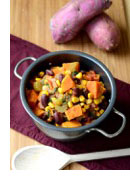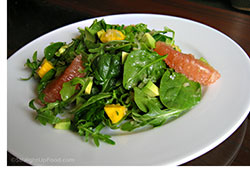Fat and Breast Cancer: No Connection?
“Cohort studies of fat and the risk of breast cancer — a pooled analysis” by David Hunter in the February 8, 1996 issue of the New England Journal of Medicine dashed the hopes many women have had they could prevent breast cancer by changing their diet (334:356). The authors analyzed seven prospective studies in four countries, comparing saturated, polyunsaturated, and monounsaturated fat and cholesterol intake, and found no significant increase in risk with increasing intake. Even when the fat intake of women was as low as 20% there appeared to be no benefit.
Comments
Breast cancer incidence varies more than fivefold internationally and when women move from countries of low incidence to countries of high incidence the rates of cancer are close to the new country. Sixty-five years of animal experiments show fat increases the risk of breast cancer in animals. So why does this study in such as prestigious journal find otherwise?
All of the study groups were of women who ate the rich Western diet. Except for one group — the Seventh Day Adventists — and they found a reason to exclude them from their analysis. Seventh Day Adventists are noted for their vegetarian diet and their lower risk of heart disease and common cancers. (About half are lacto-ovo vegetarians, but few follow a very low-fat McDougall-type diet.) Previous studies of Adventist women show they have a lower risk of breast cancer (Ca Res 43:2403s, 1983).
Women who eat a low-fat version of the rich Western diet still eat an unhealthy, cancer-promoting diet due to other qualities of the food. Low-fat could mean a diet high in low-fat meats like turkey, low-fat lunch meat, low-fat cottage cheese, skim milk, sugar coated cereals, white sugar, licorice candies, and white bread. A diet woefully lacking in cancer-fighting starches, vegetables, and fruits.
It is true that fat cannot be considered the sole cause of breast cancer. However, the rich Western diet is the cause and this conclusion is based on solid population data and animal experimentation. The American Cancer Society, The National Cancer Institute, The US Senate Select Committee on Nutrition, and The Surgeon General of the United States have all come to the conclusion that our rich diet is an important part of the cause of breast and other common cancers. These groups published their conclusions after a broad review of the scientific literature.
However, negative studies like this one capture national attention by the media because they support the unhealthy food industry, and many people like to hear good news about their bad habits. The truth is multiple qualities of the Western diet promote cancer; and a plant-based diet protects women in many ways.
Cancer Promoting Qualities of The Rich Western Diet:
- High in calories (animal studies show cancer promotion)
- High in fat (animal studies show cancer promotion)
- High in polyunsaturated fats (corn and safflower oils suppress our cancer fighting immune system)
- High in immune system suppressing animal protein
- High in cancer causing environmental chemicals (for example, DDT is twice as high in breasts of cancer victims)
- High in cholesterol which may act as a co-carcinogen (cancer helper)
A Low-Fat Plant Based Diet Protects You:
(Because it avoids all of the above and more)
- High in dietary fiber that binds and deactivates cancer causing chemicals
- High in anticancer chemicals (phytates and aryl hydroxalase inhibitors)
- High in vitamins that repair oxidative cell damage (beta carotene, C, E)
- High in phyto-estrogen (these prevent your stronger estrogen from over-stimulating your cells)
You will win the war on cancer (and the argument) if you take the stand that the rich Western diet is the cause of breast cancer.
John McDougall, MD
Recommended Articles

Recipes from the May 2006 Newsletter

Recipes from the August 2015 Newsletter






